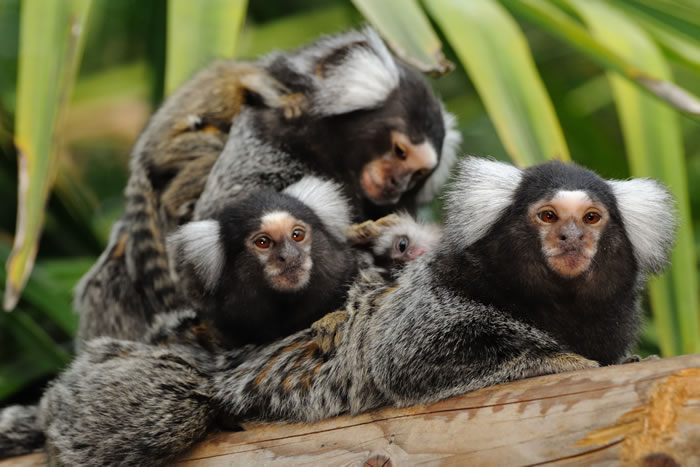Caring For Marmoset Monkeys, Marmoset monkeys are captivating and intelligent creatures known for their small size, expressive faces, and playful behavior. Native to South America, these primates are increasingly popular as exotic pets. However, caring for marmoset monkeys is a significant responsibility that requires time, effort, and a deep understanding of their unique needs.
Understanding Marmoset Monkeys
Marmosets are part of the New World monkey family and typically weigh around 300 to 500 grams. Despite their tiny stature, they are highly active, social, and emotionally complex animals. Common species kept as pets include the Common Marmoset (Callithrix jacchus) and the Pygmy Marmoset (Cebuella pygmaea).
Habitat and Housing
Proper housing is crucial when caring for marmoset monkeys. They need a spacious and stimulating environment to thrive.
- Cage Size: The enclosure should be large enough for climbing, jumping, and exploring. A minimum of 6 feet tall, 4 feet wide, and 4 feet deep is recommended for one or two marmosets.
- Materials: Use stainless steel cages with secure locks to prevent escapes.
- Enrichment: Add branches, ropes, hammocks, and toys to mimic their natural habitat and reduce boredom.
Diet and Nutrition
A balanced diet is essential for the health of marmosets.
- Main Diet: Feed them a variety of fruits, vegetables, lean protein (like boiled eggs or cooked chicken), and specially formulated marmoset biscuits or pellets.
- Supplements: Calcium and vitamin D3 supplements are often necessary to prevent bone diseases.
- Feeding Schedule: Offer fresh food two to three times a day and remove leftovers to avoid contamination.
Social and Emotional Needs
Marmosets are highly social animals and may suffer from loneliness if left alone for long periods.
- Companionship: It’s best to keep them in pairs or small groups. If you only have one, be prepared to spend a significant amount of time interacting with them daily.
- Bonding: Establish trust gradually with gentle handling, play, and treats.
- Mental Stimulation: Provide puzzle feeders, training sessions, and rotate toys regularly to keep them mentally engaged.
Health and Veterinary Care
Routine veterinary care is critical when caring for marmoset monkeys.
- Exotic Vet: Find a vet experienced with primates for regular health check-ups.
- Vaccinations: Some vets may recommend vaccines depending on your location and exposure risks.
- Common Issues: Watch for signs of illness like lethargy, loss of appetite, hair loss, or aggression. Early intervention is key.
Legal and Ethical Considerations
Before acquiring a marmoset, it’s important to research local laws and ethical implications.
- Permits: Many regions require special permits or licenses to own exotic animals.
- Ethical Sourcing: Never purchase from illegal or unethical breeders. Choose reputable sources that prioritize animal welfare.
- Long-Term Commitment: Marmosets can live 12–18 years, and their care can be as demanding as raising a child.
Conclusion
Caring for marmoset monkeys is a serious commitment that should not be taken lightly. These intelligent creatures require specialized care, social interaction, and a secure, enriched environment to lead happy, healthy lives. Prospective owners must be fully informed and prepared to meet their complex needs before bringing one into their home.
You Might Also Like These:
how much is a finger monkey pet


